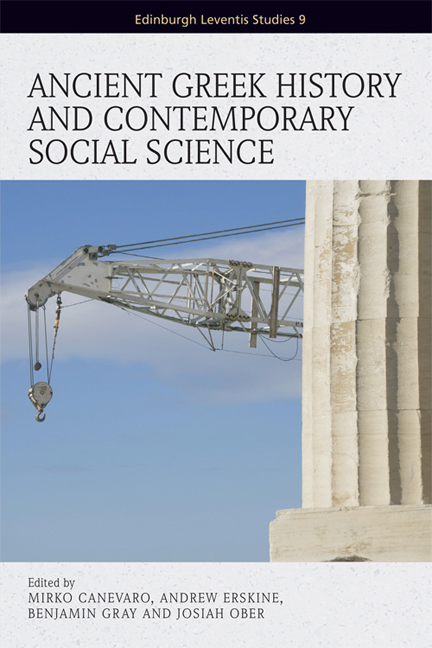1 - Behavioural Economics and Economic Behaviour in Classical Athens
Published online by Cambridge University Press: 06 May 2021
Summary
For N. Keith Rutter
Thomas Kuhn argued that ‘paradigm shifts’ occur only in the hard sciences. He would surely have been hard pressed to uphold this view had he lived to witness the sea change that has occurred in ancient economic history during the past decade and a half. Finley's ‘New Orthodoxy’ – which held sway during the 1970s and 1980s, and still retained widespread support until shortly after the turn of the millennium – has now been extensively dismantled. This change has come about through a mixture of theoretical advances (principally the shift towards the New Institutional Economics, or NIE) and a large number of empirical studies, the latter of which have shown that the ancient economy was far from as economically stagnant as the ‘New Orthodoxy’ supposed. But in the shift away from the Finley school, several variables that garnered much attention from substantivists such as Finley and that have an important bearing on economic behaviour have been left behind; and in some ways we now run the risk of replacing the narrow range of interests of the ‘New Orthodoxy’ with a different, but similarly narrow, set of interests that constitute the primary subject matter of a ‘Newer Orthodoxy’ based on NIE. In this chapter I neither propose that we return to the Finley approach, nor abandon the (very profitable) insights of NIE. Rather, I aim to highlight some of those variables that – though once the focus of attention – have been neglected in recent works of ancient economic history, and suggest new ways of looking at them. Rather than choose one ‘school’ over another (an approach that, if it gains enough followers, invariably leads to the calcification of narrow orthodoxies), I aim to graft the insights of several approaches onto the current paradigm, in the hope that this will enrich our methodological toolbox for approaching the economic history of the Greek world.
One striking feature of recent revisionist work on the Greek economy is the extent to which it has sidestepped the main thrust of Finley's argument as to why the economy took the shape that he thought it took.
- Type
- Chapter
- Information
- Ancient Greek History and Contemporary Social Science , pp. 15 - 46Publisher: Edinburgh University PressPrint publication year: 2018



